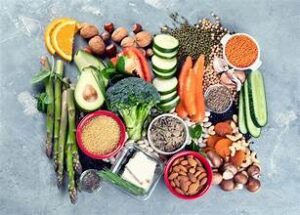In recent years, plant-based diets have emerged as a revolutionary approach to improving health and promoting sustainability. As more people become aware of the benefits associated with reducing meat consumption, this dietary shift is gaining momentum globally. This article explores the multifaceted advantages of plant-based diets, highlighting their impact on personal health and the environment.
Health Benefits of Plant-Based Diets
1. Nutrient-Rich and Balanced
Plant-based diets are abundant in essential nutrients, including vitamins, minerals, fiber, and antioxidants. Fruits, vegetables, legumes, nuts, and seeds provide a diverse range of nutrients that support overall health. These diets often contain higher levels of dietary fiber, which is crucial for digestive health and helps prevent conditions like constipation and diverticulitis.
2. Lower Risk of Chronic Diseases
Numerous studies have shown that plant-based diets can significantly reduce the risk of chronic diseases such as heart disease, type 2 diabetes, and certain cancers. The high fiber content, coupled with the absence of unhealthy saturated fats found in animal products, contributes to better cardiovascular health. Additionally, plant-based diets help in maintaining healthy blood sugar levels, reducing the risk of diabetes.
3. Weight Management
Switching to a plant-based diet can be an effective strategy for weight management. Plant-based foods are generally lower in calories and higher in fiber, which promotes a feeling of fullness and reduces overall calorie intake. This can lead to natural and sustainable weight loss, contributing to overall well-being.
Environmental Benefits of Plant-Based Diets
1. Reduced Greenhouse Gas Emissions
The livestock industry is a significant contributor to greenhouse gas emissions, which drive climate change. By reducing meat consumption and adopting plant-based diets, individuals can lower their carbon footprint. Producing plant-based foods generally requires fewer resources and generates fewer emissions compared to meat production.
2. Conservation of Water Resources
Animal agriculture is water-intensive, requiring vast amounts of water for livestock drinking, feed crops, and meat processing. Plant-based diets, on the other hand, demand significantly less water. For instance, producing one kilogram of beef requires approximately 15,000 liters of water, whereas one kilogram of potatoes requires only 287 liters.
3. Preservation of Land and Forests
The expansion of agricultural land for livestock feed production is a major driver of deforestation and habitat destruction. Transitioning to plant-based diets reduces the demand for land, helping to preserve forests and protect biodiversity. Sustainable farming practices associated with plant-based diets can also enhance soil health and prevent erosion.
Social and Economic Impacts
1. Ethical Considerations
Adopting a plant-based diet aligns with ethical considerations regarding animal welfare. Reducing meat consumption decreases the demand for factory farming, which is often associated with poor living conditions for animals. This shift can lead to more humane and ethical treatment of animals.
2. Economic Benefits
The plant-based food industry is experiencing rapid growth, creating new economic opportunities. As consumer demand for plant-based products increases, businesses are investing in innovative alternatives, from plant-based meats to dairy-free milk. This expansion not only generates jobs but also drives economic growth in the food sector.
3. Improved Food Security
Plant-based diets can contribute to improved food security by making food production more efficient and sustainable. Growing crops for direct human consumption is more resource-efficient than producing animal feed. This efficiency can help meet the nutritional needs of a growing global population.
Tips for Transitioning to a Plant-Based Diet
1. Start Slowly
Transitioning to a plant-based diet doesn’t have to be an overnight change. Start by incorporating more plant-based meals into your weekly routine. Gradually reduce meat consumption and explore new plant-based recipes to find what you enjoy.
2. Educate Yourself
Educate yourself about plant-based nutrition to ensure you’re meeting your dietary needs. There are many resources available, including books, documentaries, and online courses that provide valuable information on maintaining a balanced plant-based diet.
3. Find Support
Join plant-based communities, both online and offline, for support and inspiration. Engaging with like-minded individuals can provide motivation, share experiences, and offer practical tips for living a plant-based lifestyle.
Conclusion
Plant-based diets are revolutionizing health and sustainability by offering numerous benefits for individuals and the planet. By adopting a diet rich in plant-based foods, people can improve their health, reduce their environmental impact, and contribute to a more sustainable and ethical food system. As awareness and accessibility continue to grow, the shift towards plant-based diets is set to become a cornerstone of a healthier, more sustainable future.





